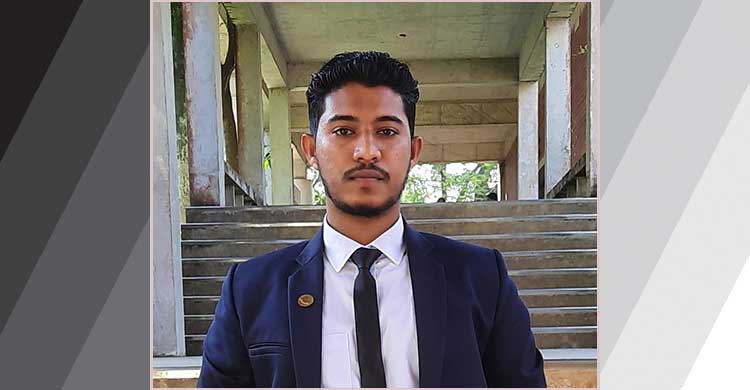Right to Food: fundamental needs or rights?

Everyone is guaranteed certain rights as a citizen of the state. These rights are stated in the constitution of the country. The rights enshrined in the constitution are the fundamental rights of a citizen. While many claim basic rights to food, clothing, shelter, education, medical care, etc., these are the basic necessities of life. Not a fundamental right.
Today our discussion on Right to food. The discussion will give the idea that right to food fundamental necessity or fundamental right from constructional aspect.
The right to food means that every man, woman and child alone and in community with others must have physical and economic access at all times to adequate food using a resource base appropriate for its procurement in ways consistent with human dignity. In the modern globalization State provide basic needs for its citizens.
In 1948, the Universal Declaration on Human Rights recognized the right to food as the criterion of “standard living”. As Article 25 provides, “Everyone has the right to a standard of living adequate for the health and well-being of himself and of his family, including food”.
Article 15 of Bangladesh constitution deliberate right to food as fundamental principles of state policy. Right to food treated as socio economic right in Bangladesh constitution.
The constitution of Bangladesh one at a time articulated provisions associated with food. But it has now no longer enumerated the supply of the need of food as a proper of humans however as a obligation of the kingdom. The provision associated with the need of food is covered withinside the bankruptcy of the essential concepts of kingdom policy now no longer in the bankruptcy of essential rights.
Article 15 is the supply of essential requirements that provides; “It will be a essential duty of the State to attain, through deliberate monetary growth, a steady growth of efficient forces and a constant development withinside the cloth and cultural well known of dwelling of the humans, with a purpose to stable to its citizens.
The availability of the essential requirements of life, which include food, clothing, shelter, schooling and clinical care.
The Constitution of Bangladesh does not recognise some rights like right to food, clothing, shelter, education and medical care as the ‘fundamental rights’. While adopting the 1972 Constitution, it was practically done because in the 1970s the newly independent country lacked sufficient resources with fragile economy. However, it categorically accommodated all of the rights in the non-judicially enforceable part of ‘Fundamental Principles of State Policy (FPSP)’, specifically in Article 15. It has manifestly been mentioned that it is the State’s responsibility to attain a steady improvement through planned economic growth with a view to securing such basic necessities of life.
Thus, the Constitution of Bangladesh taken into consideration this socio-financial proper simply as a responsibility of the kingdom which isn’t always judicially enforceable.
Fundamental Principles of State Policy (Part II) of the Bangladesh Constitution includes socio-economic rights consisting of Articles 8 to 25, such as the right to education, right to health, right to work, equality of opportunity, etc. Though these are the inalienable rights of a person, Article 8(2) of our Constitution makes these rights judicially unenforceable. These fundamental principles work as a guide to the interpretation of the Constitution.
But Article 8(2) of Bangladesh constitution depicts that fundamental principles of state policy is not judicially enforceable. In the case of Anwar Hossain v Bangladesh, Justice Badrul Haider Chowdhury stated that these principles are fundamental in the governance of the country, and it is the duty of the state to apply these principles in making laws
According to Article 32 of the Constitution of Bangladesh, “Everyone has the right to life, liberty and security of person.”
In liberal interpretation right to food also include right to life. Where article 26 to 44 of Bangladesh constitution Judicially enforceable. So the question may arise now right to food is a fundamental right or not?
In Indian Constitution article 21 recognise the right to life.
Judicial enforceableion of the Indian Supreme Court upheld that right to food is a part of the right to life in the prominent case of Kishen Pattnayak & another vs. State of Orissa.
India is now one step ahead of Bangladesh by adaptation of laws related to the right to food namely the National Aspect of Food Security Act, 2013. Not only India some other compatible countries with Bangladesh adopted laws related to the right to food including Brazil, Ecuador, El Salvador, Guatemala, Indonesia, etc.
Making the socio-monetary rights judicially enforceable will create an duty at the country to fulfil them and make use of the assets properly to carry an equitable environment for its residents and decrease the imbalance withinside the society. It is important due to the fact in lots of 0.33 international nations of the global, financial boom has occurred however the residing trendy of the humans has now no longer improved. Bangladesh has additionally ratified the ICESCR which imposes an responsibility to make those socio-monetary rights justiciable in its territorial jurisdiction as lots as it may in step with its availability of assets. The authorities has to improve with right making plans to execute those rights because the territory of Bangladesh isn’t too massive for its huge population.
The Government of Bangladesh not bound to provide food all the people of Bangladesh according to the Bangladesh constitution. Albeit, The Govt may take necessary step to provide adequate food to the people’s Republic of Bangladesh in crucial time.
Writer: Faijul Islam from Chittagong University law Department.
Sources: Maruf-Ul- Abed, ‘A Legal Analysis on Right to Food and Duty of the State: Bangladesh Perspective’ (Bangladesh Law Digest, October 31, 2020); Daily Star, ESC rights discussion, 22th November, 2012; ASK; Kudrat E Elahi khuda Ponir vs Bangladesh; Mohiuddin Faruque Vs Bangladesh, 49 DLR

